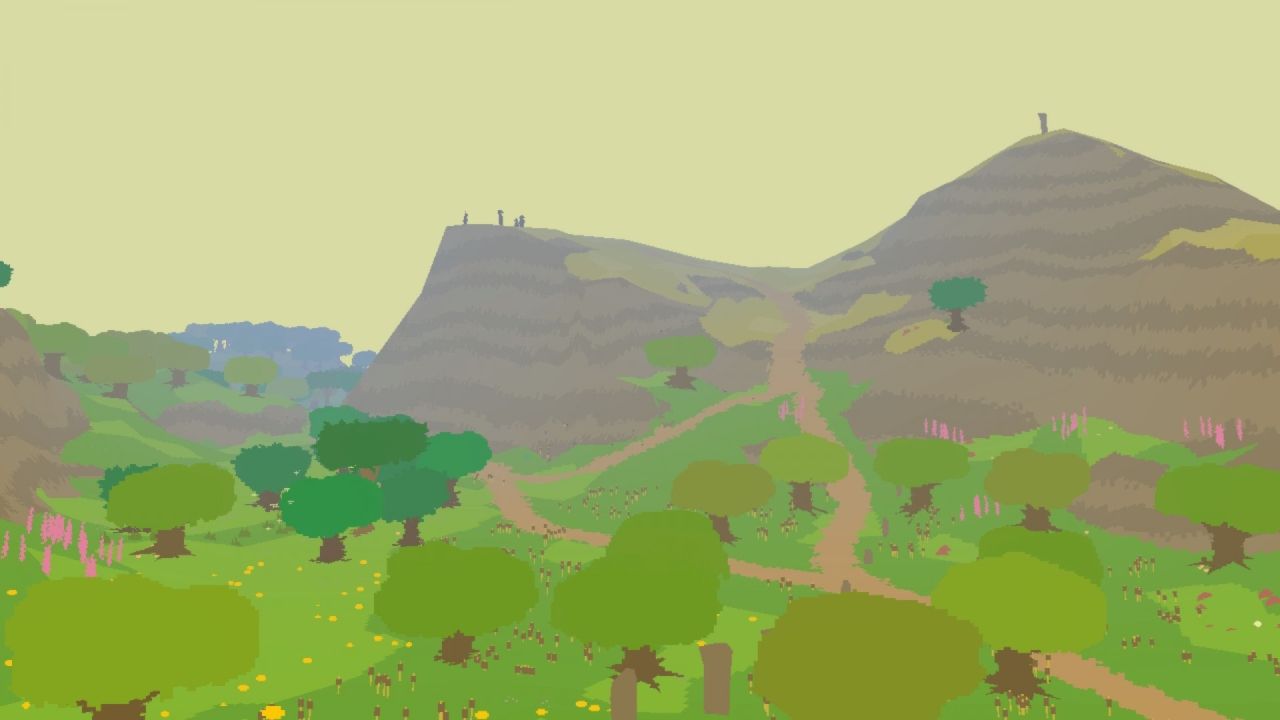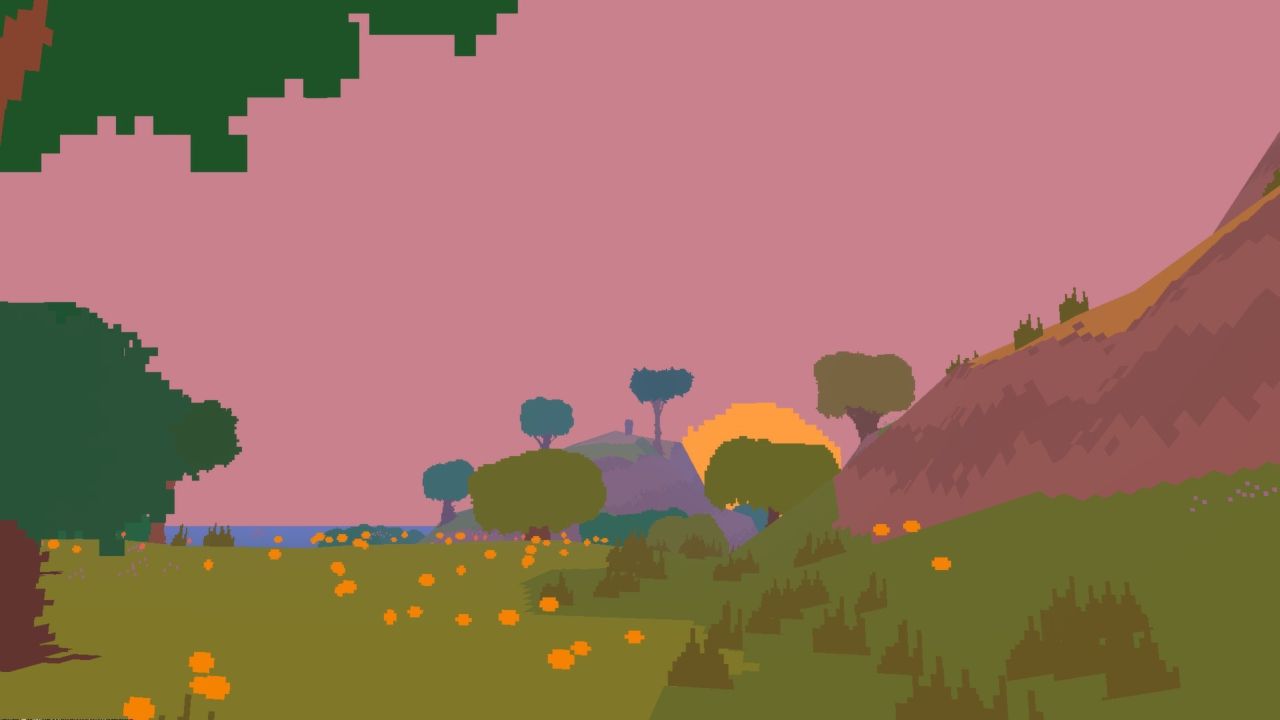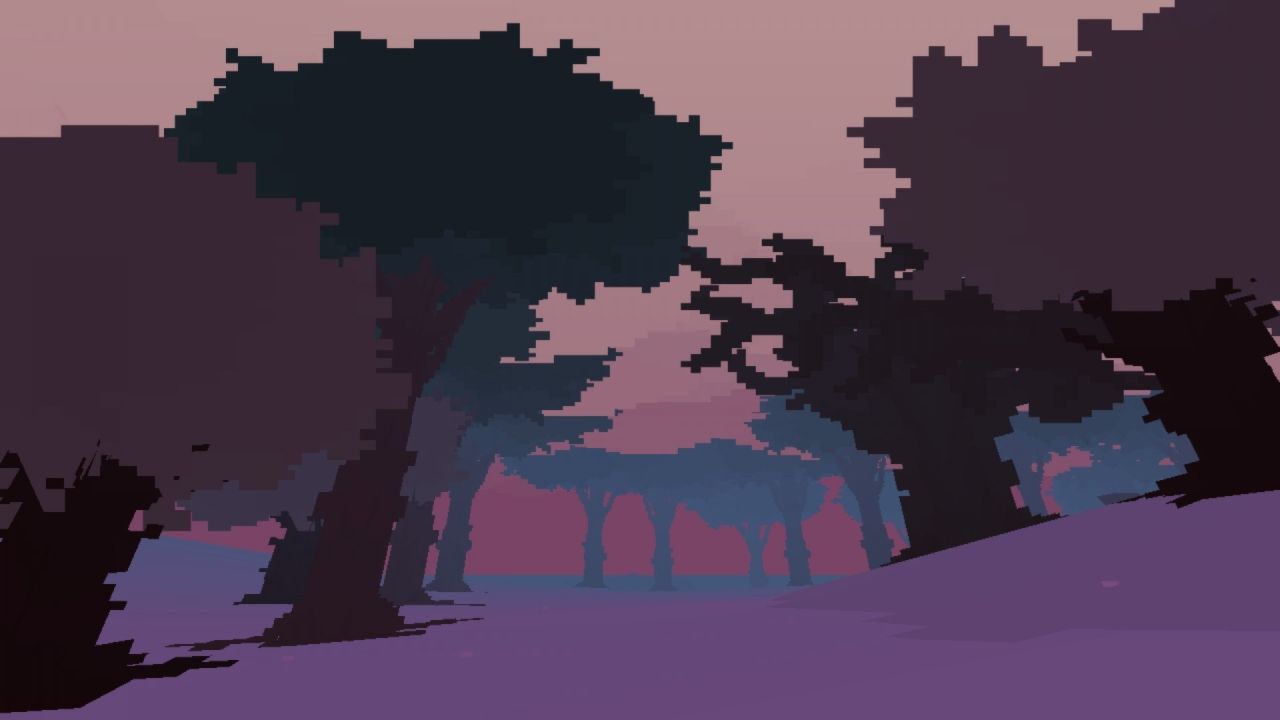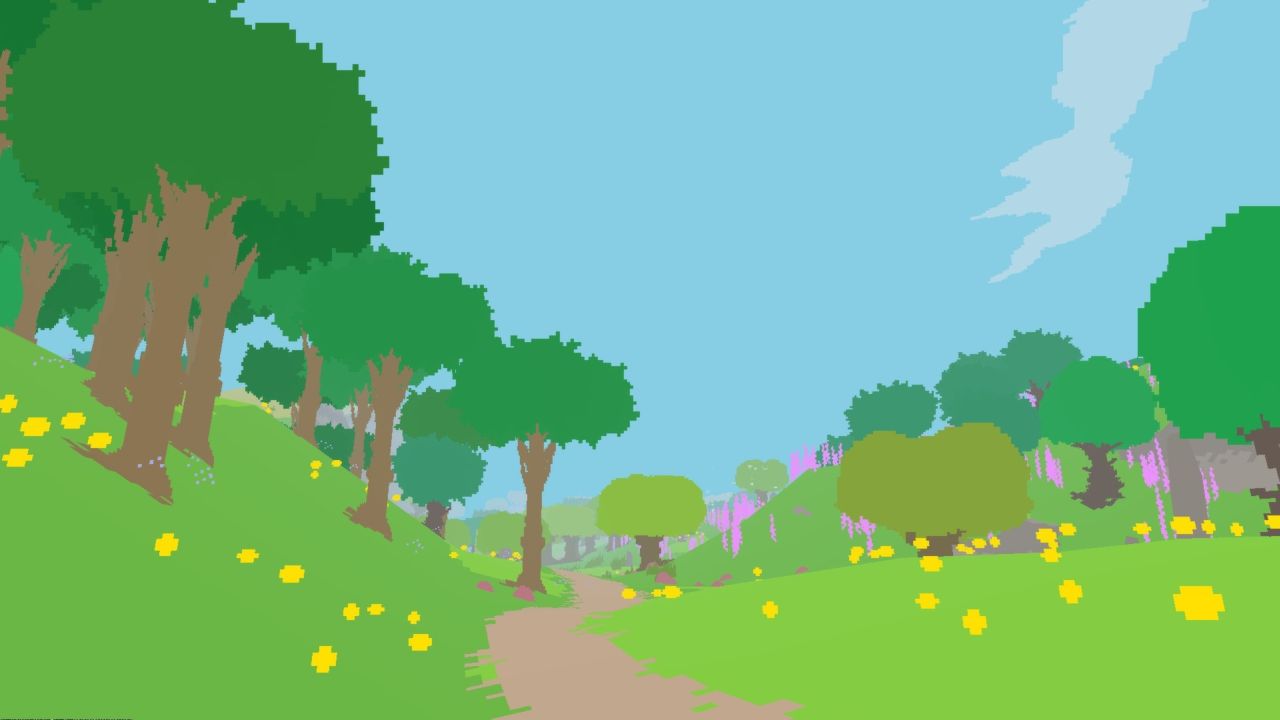Proteus Review
Seasons' greetings
Proteus is a strange thing. Simultaneously a somewhat overwhelming experience which at its heart is an allegory for life itself – along with its inevitable conclusion – but yet it is also a video game with next to no game in it. Undoubtedly your opinion will be swayed by how far you are willing to stretch the term ‘game’ itself, and whether you are able to look at Proteus simply as a piece of art, an expression that undeniably makes you feel something, although of course your experience may be different from mine.
You see, the island that Proteus solely takes place on is randomly generated each and every time you start a new game. Your island will be different to mine, and what happens on it – the intricacies and oddities – will be different too.

What Ed Key and David Kanaga have created here is a virtual retreat from everyday life itself. The rough-cut pixels that form the island – think of a more aesthetically pleasing, but no less blocky Minecraft – are simple but effective, and can do more to transport you than they have any right to do. In fact, the atmosphere created in Proteus is so thick and intense in places, you’ll forget all about its lo-fi visuals as you are sucked into its wonderful and often bizarre world. Since my initial playthrough of Proteus, I have returned several times just to be there, although it is never exactly the same there as before, even if the sense of place and atmosphere permeates every version of the game’s island.
The game is in the first person, sure, but that’s about as far as you can go in regards to describing a genre for it. It’s an exploration experience at its core as all you can do is walk around, discovering the island. But saying that that’s all you can do is selling Proteus short.
Proteus begins with you, the player, opening your eyes. You are standing in a swampy seascape, a hazy shore and the misty outline of an island in the distance ahead of you. You walk towards it. Immediately Kanaga’s retro soundtrack swells as you take your first steps beneath the pastel landscape of lemon yellow trees and square, pixelated cherry blossoms, drifting to the ground. The sounds are lively and chirpy, celebrating your new life on the island, celebrating all that is spring. Beneath these surface notes, though, there is a stirring backbone to the score that adds real weight to the surreal world of your island.

And, as previously mentioned, it really is your island. There is no one else there. No mission objective, no goal – and to some, no game. I, however, found myself lost in the myriad mysteries of Proteus almost instantaneously.
You walk up a steep and jagged hill, the rolling marshmallow clouds above, and stumble across what appear to be gravestones. A sombre note to the otherwise bright and cheerful island encroaches. Before long the lilting colors of the sun begin to set. You find a strange circle of monuments atop the island’s highest peak. They’re eerie, strange, resembling dragons, seahorses, owls, falcons and more – long lost deities, perhaps? They are just one of Proteus’ secrets, and only you can decide what they are or what they mean.
As night truly sets in, you wander through the muted tones of the forest, led by pixies or sprites. Something’s happening in the distance. They’re gathering, creating a cyclone of bright lights. You walk towards them. It transpires that if you step into the centre of this meeting place, the trees rustling around you in anticipation, the screen fades to white and what reappears is the same island, yes, but in the next season. It’s now summer.

The first time I played Proteus I didn’t know if this was optional or not as I felt utterly compelled to head into the circle every night, but on subsequent playthroughs, I learnt that you can stay in one season until you decide to move on.
If possible, everything’s brighter now that it’s summer, luminous. Dragonflies bop about here and there and the joyous, orange sun even waves goofy tendril-like sunbeams at you. Nothing could ever go wrong, right? It’s here, in the middle of your life on the island, that Proteus lulls you into a false-sense of security. That’s not to say that any gun-wielding bad guys or villains are slated to appear later, but just like life itself, youth leads you to believe that everything will be good forever, that nothing could possibly ever change. But almost to stick a pin in that balloon, you might soon come across a lone grave on a cliff top, surrounded by butterflies, reminding you of the delicate balance of life and death. Is this too perfect, too symbolic, to be randomly generated?
You move on to Fall. The frogs and chickens you chased around the island joyously in previous seasons are gone. The soundtrack catches a melancholy edge. Fallen leaves rustle about you. As night descends once more, things start to become stranger. Your relationship with time is played with, as the dark of night seems to go back and forth with early evening as you stroll around the island. Visions of the still full-bodied trees becoming skeletal and lifeless flash to and fro in front of you, warning you of what’s to come. Yellow, toxic looking clouds gather overhead. You realize that you are perhaps not quite as safe as you once thought you were.

But still, like a ritual you’ve come to accept without question, you step into the circle of lights one last time, knowing that you will never come back.
I don’t want to say too much about Winter for fear of spoiling the end, but it’s safe to say that by this point I felt lost, alone and weary. The desolate landscape before me made my heart sink. And for a game of so little, and with such a short length – it takes about an hour to go through all four seasons – it’s certainly an achievement that Key and Kanaga manage to put you through such an emotional ringer. Not only that, but Proteus, as simple as it is, asks pretty big questions about life and the human condition, about our relationship with time and the fact that we, out of all life on earth, know what waits for us at the end.
The fact remains, though, that like Dan Pinchbeck’s Dear Esther before it, there isn’t much here that makes it a game. And along with its short run time – although of course, you can always explore another, different island – many will simply be too put off. For what it is, though, I think Proteus can be seen as somewhat of an achievement. I would have liked there to be more to discover or interact with on the island, but the fact that I was thoroughly drawn into its world, and that it made me think about such large questions, proves that it did something right.
On top of that, every time I’ve booted up the game again I’ve found something else I hadn’t noticed before, however tiny, and that keeps me excited and interested in Proteus’ world. It’s not for everybody, then, but if this sounds like your sort of thing, it might be worth a go.
 Comments
Comments











